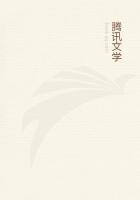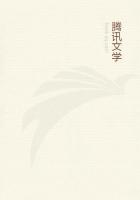The ordinary Psychology of 'ideas' constantly talks as if the vehicle of the same thing-known must be the same recurrent state of mind, and as if the having over again of the same 'idea' were not only a necessary but a sufficient condition for meaning the same thing twice.But this recurrence of the same idea would utterly defeat the existence of a repeated knowledge of anything.It would be a ****** reversion into a pre-existant state, with nothing gained in the interval, and with complete unconsciousness of the state having existed before.Such is not the way in which we think.
As a rule we are fully aware that we have thought before of the thing we think of now.The continuity and permanency of the topic is of the essence of our intellection.We recognize the old problem, and the old solutions;
and we go on to alter and improve and substitute one predicate for another without ever letting the subject change.
This is what is meant when it is said that thinking consists in ****** judgments.A succession of judgments may all be about the same thing.
The general practical postulate which encourages us to keep thinking at all is that by going on to do so we shall judge better of the same things than if we do not. In the successive judgments, all sorts of new operations are performed on the things, and all sorts of new results brought out, without the sense of the main topic ever getting lost.At the outset, we merely have the topic; then we operate on it; and finally we have it again in a richer and truer way.A compound conception has been substituted for the ****** one, but with full consciousness that both are of the Same.
The distinction between having and operating is as natural in the mental as in the material world.As our hands may hold a bit of wood and a knife, and yet do naught with either; so our mind may simply be aware of a thing's existence, and yet neither attend to it nor discriminate it, neither locate nor count nor compare nor like nor dislike nor deduce it, nor recognize it articulately as having been met with before.At the same time we know that, instead of staring at it in this entranced and senseless way, we may rally our activity in a moment, and locate, class, compare, count, and judge it.There is nothing involved in all this which we did not postulate at the very outset of our introspective work: realities, namely, extra mentem , thoughts, and possible relations of cognition between the two.The result of the thoughts' operating on the data given to sense is to transform the order in which experience comes into an entirely different order, that of the conceived world.There is no spot of light, for example, which I pick out and proceed to define as a pebble, which is not thereby torn from its mere time- and space-neighbors, and thought in conjunction with things physically parted from it by the width of nature.Compare the form in which facts appear in a text-book of physics, as logically subordinated laws, with that in which we naturally make their acquaintance.The conceptual scheme is a sort of sieve in which we try to gather up the world's contents.Most facts and relations fall through its meshes, being either too subtle or insignificant to be fixed in any conception.But whenever a physical reality is caught and identified as the same with something already conceived, it remains on the sieve, and all the predicates and relations of the conception with which it is identified become its predicates and relations too; it is subjected to the sieve's network, in other words.Thus comes to pass what Mr.Hodgson calls the translation of the perceptual into the conceptual order of the world.
In Chapter XXII we shall see how this translation always takes place for the sake of some subjective interest , and how the conception with which we handle a bit of sensible experience is really nothing but a teleological instrument.This whole function of conceiving, of fixing, and holding fast to meanings, has no significance apart from the fact that the conceiver is a creature with partial purposes and private ends.
There remains, therefore, much more to be said about conception, but for the present this will suffice.
Footnotes There are two other 'principles of identity' in philosophy.
The ontological one asserts that every real thing is what it is, that a is a , and b , b.The logical one says that what is once true of the subject of a judgment is always true of that subject.The ontological law is a tautological truism; the logical principle is already more, for it implies subjects unalterable by time.
The psychological law also implies facts which might not be realized:
there might be no succession of thoughts; or if there were, the later ones might not think of the earlier; or if they did, they might not recall the content thereof; or, recalling the content, they might not take it as 'the same' with anything else.
In later chapters we shall see that determinate relations exist between the various data thus fixed upon by the mind.These are called a priori or axiomatic relations.Simple inspection of the data enables us to perceive them; and one inspection is as effective as a million for engendering in us the conviction that between those data that relation must always hold.To change the relation we should have to make the data different.'The guarantee for the uniformity and adequacy' of the data can only be the mind's own power to fix upon any objective content, and to mean that content as often as it likes.This right of the mind to 'construct' permanent ideal objects for itself out of the data of experience seems, singularly enough, to be a stumbling-block to many.Professor Robertson in his clear and instructive article 'Axioms'















